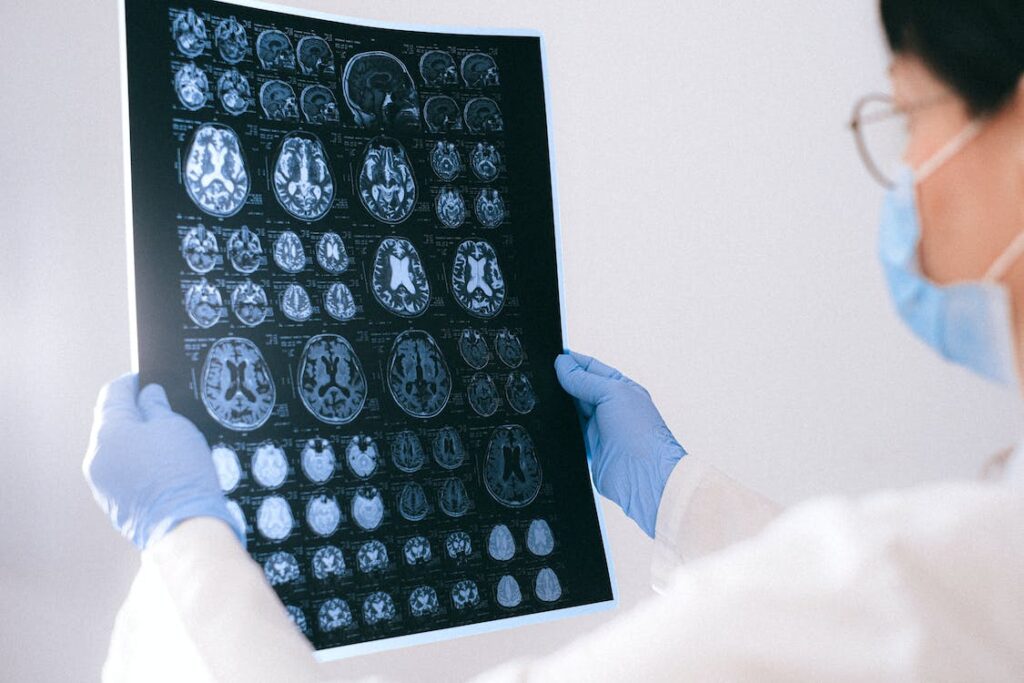Good Brain Health – Contrary to popular belief, mental decline does not always accompany aging. Even though the brain does change as we age, taking exceptional care of it can help prevent or delay disease and decline, much like with other parts of the body like the heart or joints. In fact, evidence suggests that routine behaviors like exercise and a healthy diet can reduce risks for memory loss and other cognitive decline symptoms. Studies have also shown that controlling blood sugar and blood pressure, getting enough sleep, and socializing might be good for the brain.

Other organs are fine, but they all fall short in comparison to the powerful brain, which is by far our most valuable organ. The brain utilizes a tremendous amount of energy and needs a certain amount of nutritional assistance because it works so hard all the time (even while we’re asleep). In other words, it requires a lot of maintenance.
Good Brain Health, The brain is the most important part of our human body and full body is controlled by the brain. Other organs are good, but they pale in comparison to the mighty brain. Because his brain works hard 24/7 (even while he sleeps), it consumes an enormous amount of energy and needs nourishment to maintain it. This means it is very easy to maintain. However, there may be some misconceptions about what keeps the brain healthy. For example, there’s little evidence that omega-3 supplements or green smoothies do much more than eating well in general. So, what does science tell us can actually help our brain? We know it now.
Habits and behaviors Good Brain Health

Good Brain Health – Exercising regularly
My first piece of advice to my patients is to keep exercising. This indicates that regular physical activity is beneficial for the brain. Exercise has some well-established benefits. Numerous studies have shown that physically active people have a lower risk of developing Alzheimer’s disease and are less likely to experience diminished mental capacity. We think that these advantages come from increased blood flow to the brain during exercise. Additionally, it helps mitigate the natural decline in brain connectivity that occurs with age, thereby undoing some problems. A few times a week, try to leave the house for 30-60 minutes. You can get your heart rate up by walking, swimming, playing tennis, or doing some light cardio.
Good Brain Health – Taking adequate sleep

According to some ideas, sleep helps memory consolidation and boosts overall memory and brain health by clearing the brain of abnormal proteins. It’s essential to make an effort to get seven to eight hours of uninterrupted sleep every night, as opposed to sleeping in two- or three-hour bursts. Your brain needs time to successfully consolidate and store memories, which is provided by uninterrupted sleep. Brain health is adversely affected by sleep pane. This can also be the reason why you can’t sleep uninterrupted. If you or your family members think you may have sleep pane, talk to your doctor.
Good Brain Health – Mental activity

Lifelong mental exercise, beginning with education, is linked to cognitive health, which is why Sudoku and crossword puzzles are regarded to improve cognition. Since it strengthens us with what are known as cognitive reserves, mental activity may or may not prevent a brain from acquiring disease (like Alzheimer’s), but it certainly seems to be linked to less symptoms.
Good Brain Health – Remaining socially active
Dejection and stress, two situations that could increase memory loss, are avoided by social connection. If you live alone, especially, look for ways to connect with family, friends, and other people. As solitary confinement has been linked to brain atrophy in studies, maintaining a social life may have the opposite impact and promote brain health.
Good Brain Health- Meditation
This relationship is noteworthy because, despite thousands of years of anecdotal evidence to the contrary, scientific research on the benefits of meditation for the brain has just recently begun to burst in the last five to ten years. Increased cerebral cortex volume in specific regions and decreased amygdala volume, which governs fear and anxiety, have both been associated to meditation. Additionally, it has been connected to decreased activity in the brain’s default mode network (DMN), which is engaged while our minds are racing through unpleasant and upsetting thoughts.
Good Brain Health – Coffee consumption

Many coffee drinkers are intuitively aware of the positive effects coffee has on their brains in the morning, and without it, our cognition can feel a little sluggish. However, coffee does seem to make a difference: In addition to keeping us alert by inhibiting adenosine receptors, drinking coffee has also been associated with a lower risk of depression and even Alzheimer’s and Parkinson’s illnesses. This is partially due to the chemicals in coffee, like those in cocoa, which enhance vascular health and may also work as antioxidants to aid in the repair of cellular damage.
Good Brain Health – Vitamins and minerals

Although there isn’t much proof that multivitamins are helpful for us, the brain does need some vitamins in order to function. One vitamin that is essential for the proper operation of the central nervous system is vitamin B12, a lack of which can cause cognitive symptoms including memory loss. Although there is no direct causative relationship, low levels of vitamin D have been associated to cognitive decline. Additionally necessary for brain health is vitamin D. Another element that the brain needs for proper operation is iron, which delivers oxygen and is especially important for menstrual women.
Good Brain Health – Bust a Move
A recent study published in the Journal of the American Geriatrics Society found that people who engage in physical activities that require mindfulness, such as dancing, have better cognitive function than those who do not engage in those activities. got it. Researchers have even found that an hour of dancing each week improves the brains of people who already have memory problems.
If you are looking for “ online counselling in India“ contact TalktoAngel, a platform that connects the best online therapists with psychologist near me.
- Sports Betting Website Development – Analytics and Insights - July 13, 2024
- Why Regular best automobile detailing services Is a Must for Car Owners - May 15, 2024
- Catalog Printing – Businesses Have Just Got Better with Wholesale - October 5, 2023



Post Your Thoughts